Call for Chapters | Cultural Memory in Translation: Revisiting Cultural Memory Through Interpretative Lens
The book is part of the Scholarly Collection Series and seeks to include quality works which provide new insights into cultural memory studies and further uncover the dimensions of translation and transmission of cultural memory through various media.
EDITORS
Dr. Ananta Geetey Uppal , Professor of English and Business Communication, School of Liberal Arts and Management Studies, P P Savani University, India
Dhairya Barot , Assistant Professor of English, School of Liberal Arts and Management Studies, P P Savani University, India
Quality unpublished works as chapters are invited to the book. The chapters should strictly be according to the coverage scope of the book.
SCOPE & OBJECTIVES OF THE BOOK
Cultural memory, national memory, generational memory, traumatic memory, and digital memory are a few categories into which collective memory has been explored. Cultural memory is propagated through various media, whether oral, print, or digital. Media channels cultural memory into socio-political agendas, allowing members of a collective group to participate in a political performance of association and dissociation. Thus, these media serve as ‘prosthetic memory’ for groups who do not possess the ‘memoryscape’ of the depicted culture.
This book seeks to continue the discussions in the realm of cultural memory studies and further uncover the dimensions of translation and transmission of cultural memory through various media. It will seek to take the existing discussions about this theme and will attempt to answer a few questions such as:
- In what ways does prosthetic memory affect multiculturalism?
- How does translation mediate the relationship between intergenerational trauma and cultural memory?
- How does translation contribute to the diaspora’s preservation of cultural memory?
- In which ways can translation be utilized to bring together fragmented histories?
- How does collective memory in post-colonial nations get shaped by cultural translation?
Thus, this book shall bring to light, many such questions which surface due to the intersection of discussions on Cultural memory and Translation and elaborates upon them.
Chapter proposals on the following topics (but not limited to) are invited from Cultural Memory in Translation researchers and practitioners:
1. Sexuality and Cultural Memory in Cinema
- Representation of same-sex homosexuality in Indian cinema
- Homophobia and its deconstruction through film
- Role of cinema in shaping and reforming cultural memory of sexuality
- Intersection of sociology and film studies in sexuality discourse
2. Genocide, Memory, and National Amnesia
- Memorial reconstruction and cultural amnesia in genocide narratives
- BIPOC representation in genocide studies
- Trauma and testimony in literature
- Survivor guilt and the erasure of intergenerational memory
- Politics of memory in historical atrocities
3. Art, Trauma, and Political Memory
- Artistic expression as political commentary
- The interplay of fact and fiction in historical narratives
- The impact of Nazism on German collective memory
- Representation of trauma in visual media
4. Gender, Resistance, and Memory in Literature and Film
- Feminist readings of historical trauma
- Intersectional identities and the impact of socio-political movements
- Role of grief in personal and political resistance
- Cinema and literature as spaces of counter-memory
5. Intersectionality and Cultural Memory in Indian Visual Media
- Representation of gender, caste, and sexuality in Indian cinema
- Censorship and its role in shaping narratives
- Globalization and its impact on indigenous cultural representations
- Digital platforms and evolving media landscapes
6. Feminist Memory and Trauma in Literature
- Memory as a site of resistance in feminist narratives
- Trauma, oppression, and agency in patriarchal structures
- Disruptions in personal identity through fragmented memory
- Interrogation of gender roles through narrative techniques
7. Nostalgia, Gaming, and Political Memory
- Indie games as spaces for memory reconstruction
- Nostalgia as a tool for control and resistance
- Borders as physical and psychological constructs in gaming narratives
- Temporal displacement and its impact on identity and memory
8. Language, Translation, and Resistance in Marginalized Communities
- Miya poetry as a medium of cultural resistance
- Language as a site of both oppression and counter-resistance
- Statelessness and marginalization in literary activism
- The role of poetry in envisioning and redefining community identities
9. Family, Social Constructs, and Memory in Cinema
- Gendered expectations in Indian households
- Women’s autonomy and resistance against social norms
- Friendship, loss, and redefined family structures
- Cinematic memory as a tool for feminist discourse
10. Heritage, Religious Texts, and Cultural Memory
- Preservation of religious identity through cultural memory
- Role of oral traditions and texts in sustaining heritage
- Challenges of modernity and globalization on traditional practices
- Adaptation of cultural narratives to contemporary formats
IMPORTANT DATES
Chapter abstract submission: May 15th, 2025
Full chapter submission: May 31st, 2025
Book publication: August-September 2025
IMPORTANT GUIDELINES & NOTES
- The chapters (abstracts/full-texts) should be submitted to the volume editor at [email protected].
- A chapter should NOT exceed 10% similarity content from all sources, including referenced works.
- The contributing authors need to adhere to our Policy on the use of generative AI tools and technologies in academic writing .
- The abstracts/full texts will be shared with the volume editor, and the authors will directly be contacted by the volume editor with an acceptance/rejection/amendment decision.
- There is no chapter submission/processing or publishing charge.The book accepts chapters free of any APC/fee.
- A chapter should be APA 7th Edition styled and submitted in MS Docx format and must include authors’ affiliation details, failing which the chapters will not be considered for review. A chapter should ideally be of 5,000 to 10,000 words including references with Times New Roman Font Size 12 with single line spacing & page margins of 1″ (Top, Bottom, Left, Right).
- Unoriginal or previously published works will not be processed for review.
- All chapters need to have complete affiliation details.
- All chapters will be reviewed by chapter reviewers (peer-reviewers) before acceptance by the book editor. The chapters will be reviewed using a double-blind peer review system.
- The editorial (editor’s) decision of accepting or rejecting a chapter shall be final. The book editor has all the editorial freedoms pertaining to the content quality of the book, and the publisher doesn’t interfere in any editorial decision taken by the editor pertaining to the acceptance/rejection of any work for the book.
- The authors submitting chapters need to adhere to our policies on plagiarism, scholarly misconduct, and publication ethics. The copyright respecting the accepted chapters will remain with the authors, with the publications’ rights being with the CSMFL Publications.
- The authors of the accepted & published chapters retain their right to use their work for scholarly and teaching purposes, subject to the conditions and limitations as described in Authors’ Rights for Content Reuse .
BOOK’s AVAILABILITY
The book will be published in print and ebook formats. CSMFL Books are indexed and available in leading academic databases and are available worldwide through our 200+ international content partnerships.
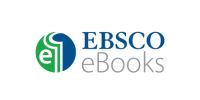



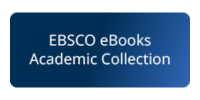
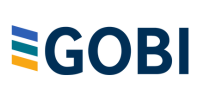
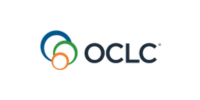

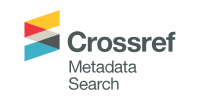



Want to publish an Edited Book/Volume?
If you want to publish an edited volume with us as an editor, you’re invited to submit your edited proposal.
Submit edited book proposal
Want to publish a chapter in our edited volumes?
You can check the edited volumes that are currently accepting chapter contributions.